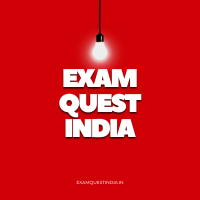
Which Bank Exam is “Easy”?
The allure of a stable career, decent pay, and social prestige makes banking jobs a popular choice in India. With numerous banks conducting recruitment exams throughout the year, aspiring bankers often find themselves asking: “Which bank exam is the easiest?” The truth, however, is far more nuanced than a simple answer. “Easy” is subjective and depends heavily on an individual’s strengths, preparation, and the specific exam in question. This article will delve into the various bank exams, their difficulty levels, and the factors that influence perceived ease, offering a realistic perspective for aspiring bankers.
Table of Contents
Understanding the Banking Landscape
India’s banking sector is broadly classified into public sector banks (PSBs), private sector banks, regional rural banks (RRBs), and specialized banks. Each category has its own recruitment processes. PSBs, which dominate the sector, typically conduct exams through the Institute of Banking Personnel Selection (IBPS) or the State Bank of India (SBI) itself. Private banks, on the other hand, usually have their own selection procedures, which may include written tests, interviews, and group discussions. RRBs also conduct exams through IBPS.
The Major Players: Examining the Exams
Several prominent bank exams cater to different roles and levels of expertise. Some of the most popular ones include:
- IBPS PO (Probationary Officer): This exam is conducted for recruitment to the post of Probationary Officer in various PSBs (except SBI). It’s a two-tier process involving a preliminary exam and a main exam, followed by a personal interview. The competition is fierce, with lakhs of aspirants vying for a limited number of positions.
- IBPS Clerk: This exam is for clerical positions in PSBs. Similar to the PO exam, it involves a preliminary and main exam. While the syllabus might be considered slightly less challenging than the PO exam, the sheer volume of applicants makes it highly competitive.
- SBI PO: The State Bank of India conducts its own PO exam, which is considered by many to be one of the toughest banking exams. It also follows a multi-stage selection process.
- SBI Clerk: SBI also conducts a separate exam for clerical positions. Like the IBPS Clerk exam, it sees high participation rates.
- RRB PO and Clerk: These exams are conducted by IBPS for recruitment in Regional Rural Banks. The difficulty level is generally perceived to be slightly lower than the IBPS PO and Clerk exams for PSBs, but it still requires dedicated preparation.
- Specialist Officer (SO) Exams: These exams cater to specialized roles like IT Officer, Agricultural Officer, Marketing Officer, etc. The difficulty level varies depending on the specific specialization.
- RBI Exams: The Reserve Bank of India, the central bank of the country, also conducts various recruitment exams for different positions. These exams are generally considered to be highly competitive and require in-depth knowledge of economics, finance, and banking.
What Makes an Exam “Easy” or “Difficult”?
The perception of an exam’s difficulty is subjective and influenced by several factors:
- Individual Strengths: A candidate with a strong aptitude for quantitative aptitude might find the numerical sections of the exam easier, while someone with excellent verbal skills might excel in the English language section.
- Preparation Level: Thorough preparation is the most significant factor in determining success. A well-prepared candidate will find the exam relatively easier than someone who has not studied adequately.
- Exam Pattern and Syllabus: Familiarity with the exam pattern and syllabus is crucial. Understanding the types of questions asked and the topics covered allows candidates to focus their preparation effectively.
- Competition: The number of applicants and the overall performance of the candidates also play a role. Even if an exam’s difficulty level is moderate, high competition can make it challenging to secure a good rank.
- Previous Experience: Candidates who have taken similar exams before are likely to be more familiar with the format and the types of questions asked, which can give them an advantage.
Debunking the “Easy Exam” Myth
There is no universally “easy” bank exam. Each exam has its own challenges and requires dedicated preparation. Focusing solely on finding the “easiest” exam can be detrimental. Instead, aspiring bankers should focus on identifying their strengths and weaknesses and choosing an exam that aligns with their skills and career goals.
A Smart Approach to Exam Selection
Here’s a strategic approach to choosing the right bank exam:
- Self-Assessment: Evaluate your strengths and weaknesses in areas like quantitative aptitude, reasoning, English language, and general awareness.
- Research: Thoroughly research the different bank exams, their syllabus, exam pattern, and eligibility criteria.
- Align with Career Goals: Choose an exam that aligns with your career aspirations. If you aspire to be a specialist officer, focus on SO exams. If you are interested in general banking, PO or Clerk exams might be more suitable.
- Consider Competition: While you shouldn’t be deterred by high competition, it’s essential to be aware of the level of competition for different exams.
- Analyze Previous Years’ Papers: Solving previous years’ question papers can give you a good understanding of the exam pattern and the types of questions asked.
- Create a Study Plan: Develop a comprehensive study plan that covers all the relevant topics and allows for sufficient practice and revision.
Beyond the Exam: The Importance of Soft Skills and Personality
While clearing the written exam is essential, it’s not the only factor in the selection process. Many banks also conduct interviews and group discussions to assess candidates’ soft skills, communication skills, and personality. Developing these skills is equally important for success.
Data and Statistics (Illustrative Examples)
- Note: Actual data varies year to year. For illustrative purposes, let’s consider hypothetical figures. For a particular year, the number of applicants for IBPS PO might be 10 lakhs, while the number of vacancies might be 5,000. This translates to a success rate of 0.05%. This highlights the intense competition.
General Knowledge Insights
Familiarity with current events, economic trends, and banking-related news is crucial for both the written exam and the interview. Staying updated on these topics can give you an edge.
Conclusion
The quest for the “easiest” bank exam is a misguided one. Success in banking exams requires a combination of hard work, strategic planning, and self-awareness. Instead of looking for shortcuts, focus on identifying your strengths, choosing an exam that aligns with your goals, and preparing thoroughly. Remember, consistent effort and dedication are the keys to unlocking a successful banking career. The satisfaction of achieving your goals will far outweigh the perceived “ease” or “difficulty” of the exam.
FAQs
Q: What is the age limit for bank exams?
A: Age limits vary depending on the specific bank and the position. Generally, it ranges from 20 to 30 years, with relaxations for certain categories as per government norms. Always check the official notification for the specific exam.
Q: What is the educational qualification required for bank exams?
A: For most PO and Clerk level exams, a bachelor’s degree in any discipline from a recognized university is the minimum requirement. Specialist Officer (SO) positions may require specific professional degrees (e.g., engineering, agriculture, law). Again, refer to the official notification.
Q: How many times can I attempt a bank exam?
A: There is usually no limit on the number of attempts for most bank exams, but some banks might have their own restrictions. Check the official notification for details.
Q: Are there any sectional cutoffs in bank exams?
A: Yes, most bank exams have sectional cutoffs. Candidates need to clear the cutoff in each section to be eligible for the next stage of the selection process.
Q: What is the selection process for bank exams?
A: The selection process typically involves a preliminary exam, a main exam, and a personal interview (and sometimes a group discussion). Some exams might also have a descriptive paper or a psychometric test.
Q: What is the salary of a bank PO/Clerk?
A: Salaries vary depending on the bank, location, and position. PO positions generally offer higher salaries compared to Clerk positions. Besides basic pay, there are various allowances and benefits.
Q: Where can I find the official notifications for bank exams?
A: Official notifications are usually published on the websites of the respective banks or on the IBPS website (for IBPS exams).
Q: What is the difference between IBPS PO and SBI PO?
A: While both are for Probationary Officer positions, SBI PO is conducted by the State Bank of India for its own recruitment, while IBPS PO is for recruitment in other participating PSBs. SBI PO is generally perceived to be slightly tougher.
Q: What is the syllabus for bank exams?
A: The syllabus generally includes Quantitative Aptitude, Reasoning Ability, English Language, General Awareness (with a focus on banking and finance), and sometimes Computer Knowledge. For SO exams, the syllabus also includes the relevant specialized subject.
Q: Are there any specific books or study materials recommended for bank exam preparation?
A: Many publishers offer books specifically for bank exam preparation. Online resources, mock tests, and previous years’ question papers are also very helpful. Focus on understanding the concepts rather than just memorizing.
Q: How can I improve my general awareness for bank exams?
A: Read newspapers regularly, follow financial news, and stay updated on current events, especially those related to banking and the economy. Several online resources also provide current affairs updates.
Q: How important is computer knowledge for bank exams?
A: While not a major component in all exams, basic computer knowledge is often tested. Familiarity with MS Office, internet usage, and basic computer terminology is usually sufficient.
Q: What is the role of mock tests in bank exam preparation?
A: Mock tests are crucial for assessing your preparation level, identifying your weak areas, and improving your time management skills. Regularly taking mock tests can significantly boost your confidence and performance in the actual exam.
Q: How much time should I dedicate to bank exam preparation?
A: The amount of time required varies from person to person. Consistent and focused study for at least 6-8 months is generally recommended.
Q: What is the best way to manage time during the exam?
A: Practice time management during mock tests. Allocate specific time slots for each section and stick to your plan. Don’t spend too much time on a single question.
Q: How can I improve my accuracy in bank exams?
A: Focus on understanding the fundamental concepts and practicing regularly. Analyze your mistakes in mock tests and work on improving your weaker areas.
Q: What should be my strategy for the interview stage?
A: Be confident, honest, and articulate. Brush up on your general knowledge, banking awareness, and your own resume. Practice answering common interview questions.
Discover more from ExamQuestIndia: The Best Exam Prep Platform in India
Subscribe to get the latest posts sent to your email.







